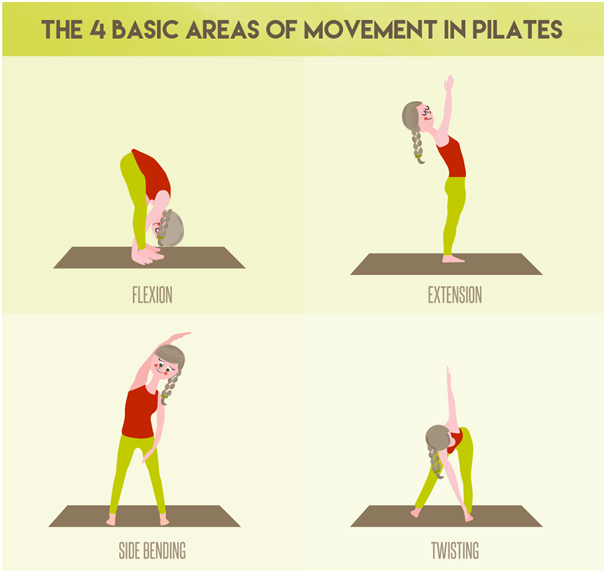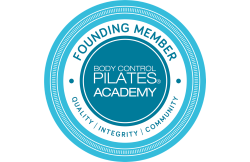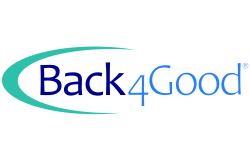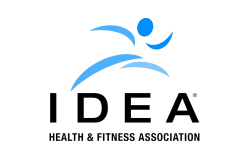Return To The Studio
We are gradually returning to the studio. I will continue a Zoom class whilst there is demand but please contact me if you wish to join the in-studio sessions. There is a unique opportunity to 'start again' following the break from the Covid-19 Pandemic.
Zoom Online
Monday 15th June - Wednesday 22nd July booking now, please contact me.
Online Classes
Monday 20th April - 10th June, 8 week block of online matclasses.
Mondays and Wednesdays 9am Intermediate matwork. £12 a session (£96) block.
Privates and Duets available, please contact me for bookings.
Kundalini and Gong Workshop
Introductory Level Masterclass with Sally Carmichael
25th April 9.30 - 11.30am Earlybird £30, after 6th March £35.
Kundalini Yoga increases our personal capacity to thrive in all aspects of life by conditioning the nervous and glandular systems, developing our awareness and re-training the mind. This style of yoga uses rhythmic movement synchronised with the breath to remove blocks that impede the natural flow of ease throughout our systems.
This mornings set will relax your mind and body and is ideal for the yoga curious! We will complete the work with a relaxing gong bath and tea and chocolates to revive.
To book please contact carina@cbayley.com or 07712187355.
Bring a cosy blanket, cushion and eyemask.
NULU Pop Up Shop
Monday 10th February, 9.30 - 2.00pm
Colourful activewear for sale in the studio. Please park in Notcutts if not attending class that day.
Miranda Bass Workshop
Reformer Workshop – Beneficial for Mat and Reformer Instructors
Miranda Bass will be at Posture Perfect Pilates
on Sunday 13th October 2019 10.00am – 5.00pm
‘It ain’t what you do it’s the way that you do it!’
‘I think we will all agree that at first we thought we were doing it right and after a small adjustment, a different cue, a new expression of imagery or a bit of physical help from our teacher we suddenly discover how it makes sense and feels right. My thirty-year career has been sprinkled with these moments and still is.
This one-day workshop focuses on how to use and move the piece of apparatus called the Universal reformer. In the Pilates world the word ‘machine’ is avoided as it carries with it some connotation of force or drive apart from the human body.
The idea behind the exercises and how they connect to each other and other apparatus and mat exercises will make up part of the content. The students will work in rotation; one group working on the reformer, the other working simultaneously on the mats sometimes using hand weights. This will allow each student to find where the work is under resistance and be able to transpose it to the mat where possible. This will help provide the teacher with alternate repertoire within the authentic Pilates system.
The rest of the content will be on spring and gear variations, box and foot bar set-up, and ways of building a movement towards its’ goal.
I hope this workshop will be useful for reformer and mat teachers, providing tools for a deeper understanding of control and emphasis of the movement, resistance, opposition variety for a mat class.
I plan to cover the advanced reformer repertoire which, of course, includes the basic and intermediate work so this workshop is suitable for intermediate and advanced students’ Miranda Bass.
Please contact Carina Bayley by email to book. CPD 30 points.
Payment of £185 to M Bass Acct. 00483526 sort code 30-91-72.
Franklin Workshop - Pelvic Power
Do you suffer from lower back pain, tight hips or weak knees and ankles?
Come to the Franklin workshop at PPP to discover how to release tension in these areas and improve your movement. This workshop will be helpful to anyone wishing to improve their movement and function.
Saturday 21st September 9.30 – 12.30 Hosted by
Posture Perfect Pilates Cranleigh.
Vanessa McLachlan is an experienced Body Control Pilates instructor who is also qualified in the Franklin Method using imagery to create efficient movement.
“In this workshop we will begin by looking at how we can create change in our bodies by using different types of imagery. We will use all the tools that are scientifically proven to stimulate and refine the communication between the mind and the body. We shall explore our pelvis and hip joints in more detail in order to get a better understanding of its movement potential in order to create positive lasting change in our bodies.
We shall conclude with a fun way of exploring our pelvic floor muscles and how we can train them effectively, as this is important for pelvic alignment and ease of motion in the hip joints and lower back.”
Working individually, in pairs and as a group, using Franklin balls and bands. Please join us and enjoy working with the mind and body with Vanessa. If you want to email Vanessa with questions, please do so on vanessamclachlan@yahoo.co.uk
Please contact Carina Bayley by email to book.
Payment of £75 to V McLachlan Acct. 01550944 /sort code 30-93-49
5 Core Principles
The 5 Core Principles of Pilates: Centering/Concentration/Control/Precision/Breath. Always good to remind ourselves of these principles.
I found these drawings below and thought they are a really good visual to help us to remember what we are doing when we work through our Pilates exercises.
When Planning a class I consider how best to work the body through the different movement planes incorporating full range of movement as much as possible.
Within each category of movement, there’s attention to precise alignment and placement of the body in space. This specificity requires the Pilates student to exert control over the entire musculature of the body, increasing awareness of everyday functioning and promoting balanced movements. Enjoy working through these at home and in the studio. Keeping in mind you need to include the 4 areas of movement whenever you decide to work on.

We are what we repeatedly do.
“We are what we repeatedly do. Excellence, then, is not an act, but a habit.”
Aristotle.
Mindfulness is a buzzword these days having meaning for many people in different situations. People in pain often use mindfulness techniques to help cope with their situation. Generally speaking it is advisable to take more notice of the world around us – use our senses and live in the moment.
This is not new but the current approach is different. We are advised to slow everything down whether eating food, drinking, or exercising.
Mindful Movement
Here at Posture Perfect Pilates I have always promoted Mindful Movement. This is a helpful cue when instructing The Pilates Method. The body will not get the full benefit from exercise without the full co-operation of the mind in my opinion.
Here are some of my tips:
- Breathing, stay focused, feel the breath moving in and out. Notice if the inhale or exhale is longer? Notice how the ribs move with the breath.
- Use the floor. Feel grounded when standing upright and feel the connections from the feet right through the body. This will help with balance.
- Symmetry and asymmetry are both crucial clues as to how the body is working. Use the floor to give you feedback when lying down and sitting upright.
- Feel where you move from – where is your centre line? Work from the inside out and feel the energy right down to the fingers/toes/head.
- One of the principles of Pilates is Concentration. Without this you will find it very hard to achieve the ‘essence’ of the movement.
- Enjoy the moment. Do not rush through thinking ahead all the time.
“Movement is the song of the body”
Vanda Scaravelli
Not sure if you should exercise?
Sometimes we are not on top form and wonder whether we should take a class/run/swim.
We have all heard conflicting reports on how exercise can make a cold worse or help us to ‘sweat it out’. It is hard to know what to believe.
Add to this the recent research claiming both men and women are pushing themselves to achieve marathons/triathlons/Iron men/Iron Women challenges. All this makes it hard to know which direction to head in.
Guidance
Exercise should be something you enjoy doing. Without enjoyment it is difficult to maintain a regular schedule of activity. We all like a challenge and I think it is helpful to include a variety of activities each week in your exercise portfolio so your mind/body connection is involved on more than one level. Perhaps add a brisk walk/swim/dancing to your weekly activity as well as Pilates.
Adults should get at least 30 - 60 minutes of moderate-intensity exercise five days a week (American College of Sports Medicine). Some people prefer to take 3 one hour sessions a week and add in shorter sessions on the in between days. It is your call.
Simple questions can help you decide what might suit you best, do you like being in a group or prefer to be alone? Indoors or outdoors?
Exercise or Rest Days?
Generally the advice is to assess how you feel – do you just have a sniffle, then light exercise could be beneficial. However if you are struggling with a really bad cold then a rest would make sense. Fever is an indication to rest up.
Prevention – Germs!
Be meticulous about cleaning your hands thoroughly with hot water and soap before eating, cooking, after touching pets or blowing your nose and using the loo. Cold and flu viruses can linger on doorknobs and other surfaces so don’t touch your eyes or nose until you have washed your hands.
Carry an antibacterial gel in your hand bag; sometimes it is easier than finding a sink!
Final word
If you feel unwell leave the exercise that day – listen to your body. But remember it is important to keep mobile so if the problem is more an ache rather than an illness then movement will usually help you. Maintaining the full range of motion is so important throughout our lives.
Exercise To Help Relieve Anxiety and Depression.
Anxiety and depression, both mood disorders, are the two most widespread
mental health concerns and are increasing worldwide (NIMH2014a).
It is interesting to look at the science and see some of the ways exercise can help improve mental health.
1. Physical activity can help reduce the risk factors - inflammation, diabetes, hypertension, cardiovascular disease. The increase in blood flow is beneficial delivering additional nutrients and energy.
2. Exercise is stressful so regular exercise can increase a person’s resilience toward other forms of physical and emotional stress.
3. Improves self esteem when we master a new skill.
4. Social contact in classes can boost moods.
5. Being outdoors can be beneficial – sunlight and green environments.
6. Exercise helps people divert negative thinking – it can help people get out of the negative thought cycles.
Physical activity can cause chemical changes in the body which affect our moods. Medication can target neurochemicals to normalise levels but research shows that exercise can also increase the levels. So whilst exercise may not replace all medication there is evidence it can be a valuable adjunctive therapy.
It is important to choose the exercise programme to suit you so you enjoy it and the results will be better than being forced into a programme. Running, walking, yoga, Pilates, weight training, swimming, dancing, netball, football, tennis etc.
Try This…….
Rate your mood immediately before and after exercise. This way you will appreciate whether the exercise has made you feel better immediately.
“The natural healing force within each one of us is the greatest force in getting well”
(Hippocrates).
.
The 5 Parts Of The Mind
The 5 Parts Of The Mind
“You can say what Pilates is in three words. Stretch with Strength and Control. And the control part is the most important because that makes you use your mind”
Quote: Romana Kryzanowska (June 30, 1923 - August 30, 2013) Pilates instructor who started as a student of Joseph Pilates and his wife Clara at their studio on Eighth Avenue in New York. After the death of Joseph Pilates in 1968, Clara Pilates continued the studio, in 1970 Romana Kryzanowska became the director of what was by that time called "The Pilates Studio."
Mind/Body
Today we all talk about Pilates as a mind/body exercise but how often do we really consider what this means as we work through the Pilates repertoire?
Current research suggests we can improve our genes through exercise so surely we really should be looking more deeply into our exercise routines?
Pilates and the mind……
“Intelligence guided by the will using memory and imagination assisted by intuition” (Romana Kryzanowska).
Frequently we talk about Pilates being an intelligent form of exercise, we have to work hard to achieve the correct form for 100’s and it is only through constantly striving to learn the repertoire and perform it regularly that we will gain the benefits rather than just do the choreography.
The more we achieve, the more we love Pilates so our will makes us keep striving for greater challenges.
Without our memory we cannot keep going but somehow we can get ‘lost’ in the movement and have to call our mind back to move to the next exercise. Keep moving and it will come to you.
Imagination is vital as we perform our workout, our mind will help us move in different ways and keep surprising us.
Intuition is the ability to understand something immediately, without the need for conscious reasoning. Joseph Pilates used to talk about moving like an animal and I guess this is what he meant. The body is thinking and leading the mind.





